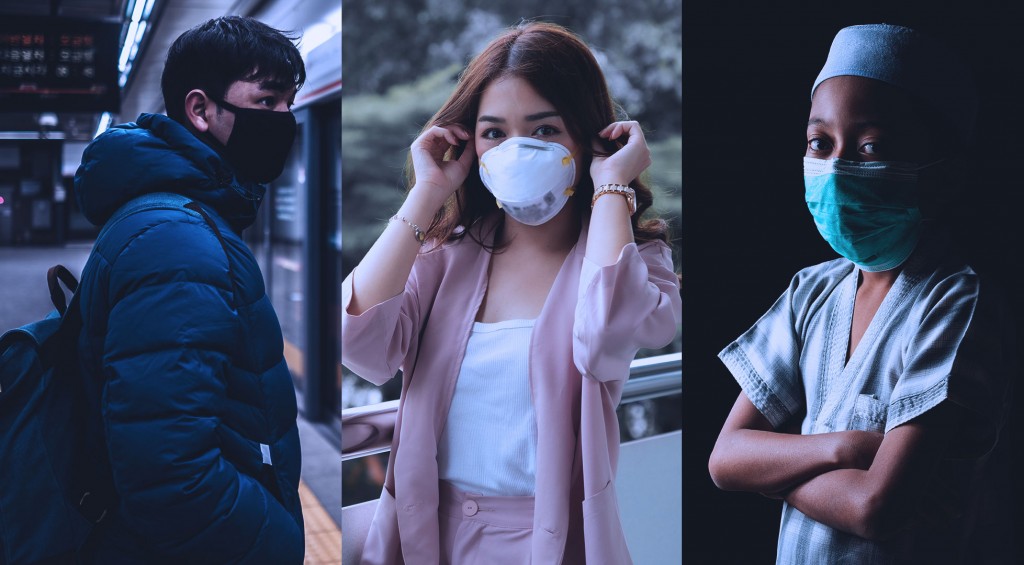Fuel campaign performance with laser-focused targeting

COVID-19 has taken the world by storm and created unprecedented times in most countries across the world. At InMobi, we delved into our Audience Intelligence platform using data signals and location polygons set up in more than 66,000 locations in Southeast Asia (SEA) to gather insights on how consumers are responding to this crisis in Malaysia, Singapore, Philippines and Indonesia. We also conducted consumer surveys for a sample size of 1056 smartphone users from March 24 to 28 in Indonesia to gain accurate and realistic insights on the current crisis that draws correspondence to:
How Indonesians are Responding to the Crisis
Lack of Awareness on COVID-19 in Indonesia
As people remain inundated with misinformation, awareness levels on COVID-19 are critically low in Indonesia. While 80% of the respondents are unaware of the origins of the Coronavirus, 40% think that it is a bio-medical experiment gone wrong between the US and China. 4 out of 10 respondents think wet markets of Wuhan or bat soup consumption is responsible for the source of the virus. Amidst the pandemic, it is pivotal to follow social distancing to contain the further spread of the virus, but only 60% of the citizens are taking social distancing seriously in Indonesia.
Only 14% can exactly identify two key symptoms of the disease. 80% of the respondents cannot identify the four preventive measures laid down by WHO, which are Social distancing, handwashing, sanitizing and covering the mouth while coughing and sneezing.
Challenges faced by Indonesians during COVID-19
Amidst the crisis, due to the sudden changes that are surfacing, respondents are facing difficulties in procuring everyday essentials and managing work. With schools being shut down, 23% of respondents are finding a balance between taking care of kids and going to office. 35% of respondents are facing challenges in purchasing handwashes and sanitizers at these crucial times when personal and societal hygiene is of utmost significance. 12% are facing difficulties in sourcing food supplies.
Changes in Lifestyle and Shopping Preferences in Indonesia
Amidst restrictions on physical movements, Indonesians are quickly adapting to the new reality with more focus on online activities. 24% of the respondents are hoarding up on daily essentials like groceries for a month or more. 77% of respondents chose personal care products where germ-killing ability takes the preference over the price. 32% of respondents have completely stopped or limited the consumption of eating out or ordering in and preferred home-cooked meals. Despite the challenges faced in sourcing food supplies, only 6% of respondents are using online apps to order food. As 60% of respondents practice social distancing, the shopping malls see a 20% downfall where the cinema theatres experience a 15% dip in the footfalls.
Shift in Consumer Behavior Across Southeast Asia
Footfalls Surge in Healthcare Centres and Essentials’ Stores
While the entertainment centres such as malls and cinema theatres take a back seat, places of emergency such as Hospitals and grocery stores experience a surge in footfalls. Hospitals witness 410%, 105% and 80% growth in Malaysia, Singapore and the Philippines respectively.
Supermarkets saw a 30% surge in Singapore, 10% in the Philippines and 148% surge in Malaysia where people seemingly look to hoard the essential kitchen and personal care supplies.
People Turn to Mobile Apps to Alleviate Stress
As people shelter at home, they turn to mobiles as a source of entertainment and to de-stress. Image and Video editing apps, Books, Social Media and Gaming apps are the top stress relievers for consumers across SEA. Travel app usage (flight tracking, ticket rescheduling and cancellation) grows by 586% with people trying to track or reschedule their travel plans amidst the lockdown in Indonesia. Communication apps witness a 900% surge while books and comic apps experience a 200% surge in Malaysia.
As we adapt to deal with this growing crisis, the spending habits of consumers and their media consumption are witnessing substantial shifts. To help marketers and publishers better navigate this evolving situation, we are doing our bit by providing updated data and insights on the rapidly evolving trends in the digital media landscape.
Check out the complete report on consumer behavior amidst COVID-19 in Southeast Asia. Or, visit the InMobi COVID-19 Global page to explore our audience intelligence on Consumer behavior during COVID-19 in India, Australia and across the globe.
Survey Methodology: The survey was conducted on the InMobi Pulse Platform. 60% of survey respondents are male and 40% are female. 62% of the survey respondents belong to Gen Z (below the age of 24 years, 17% are Millennials aging between 25 to 34 years old and 21% are Baby boomers (above the age of 35 years). Out of the survey respondents, 71% are single while 29% are married, which shows the diversity of the audience InMobi covered to get a wide spectrum of responses.
Register to our blog updates newsletter to receive the latest content in your inbox.